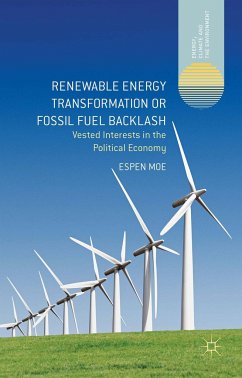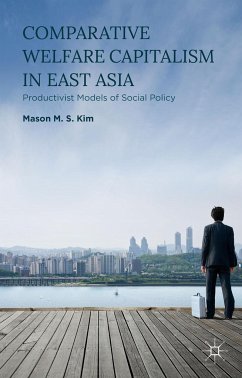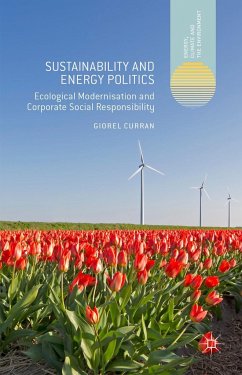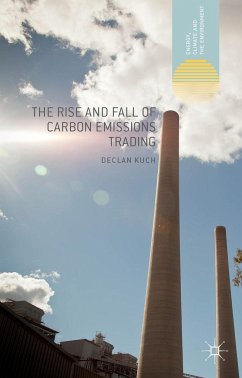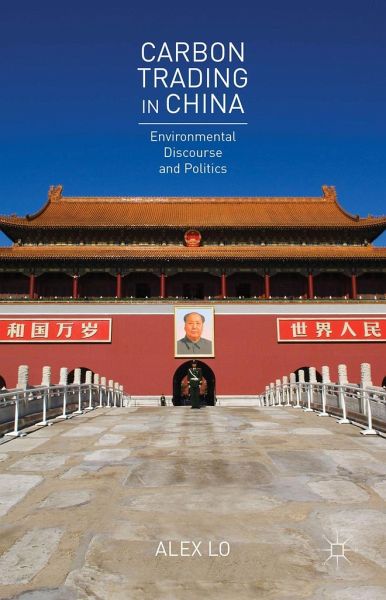
Carbon Trading in China
Environmental Discourse and Politics

PAYBACK Punkte
38 °P sammeln!
Carbon trading has the potential to become the mainstream climate change policy approach, finding its way in China, the world's largest greenhouse gas emitter and second largest economy. Focusing on political dimensions, Alex Lo explores the discourse of carbon trading in this country. As a socialist market economy, China emerges as an exception, where liberal forms of political and market norms do not prevail. The author provides a review of the policy development process and institutional issues about the construction of carbon markets in China. He also presents a critique about the politica...
Carbon trading has the potential to become the mainstream climate change policy approach, finding its way in China, the world's largest greenhouse gas emitter and second largest economy. Focusing on political dimensions, Alex Lo explores the discourse of carbon trading in this country. As a socialist market economy, China emerges as an exception, where liberal forms of political and market norms do not prevail. The author provides a review of the policy development process and institutional issues about the construction of carbon markets in China. He also presents a critique about the political origins and drivers of the national preference for market institutions, and narratives about the relationship between national power and climate change action.




